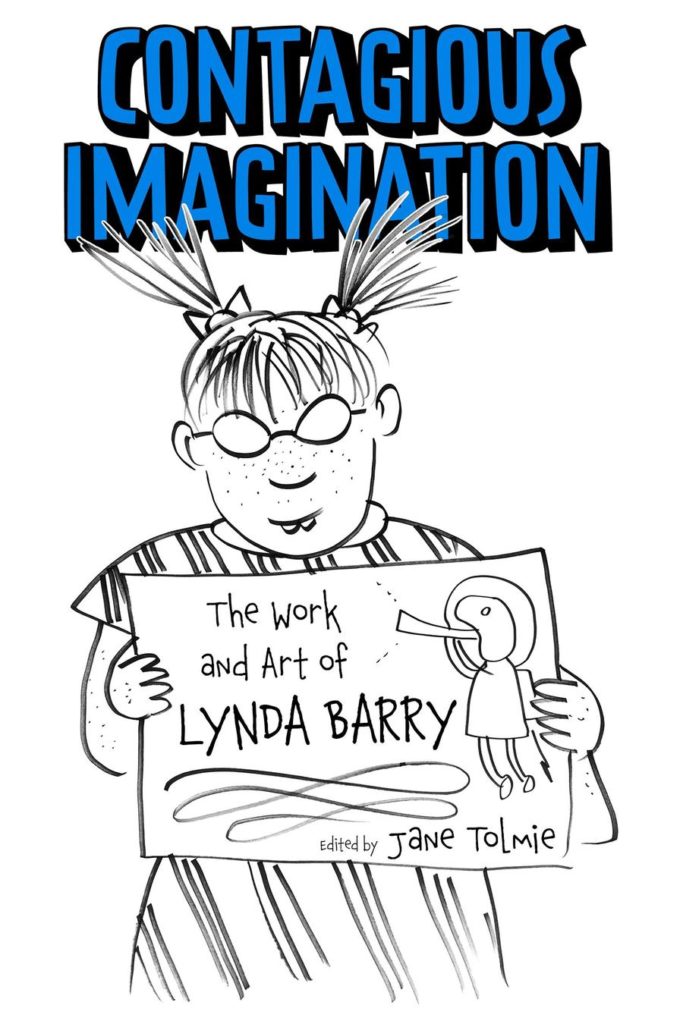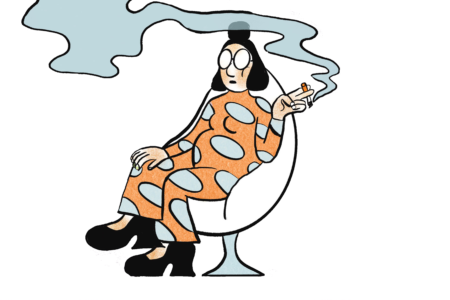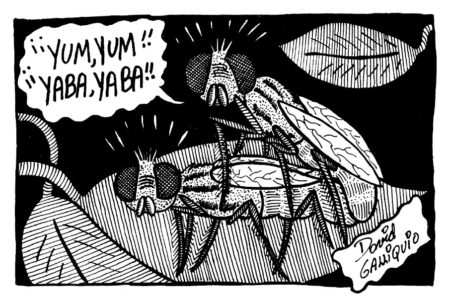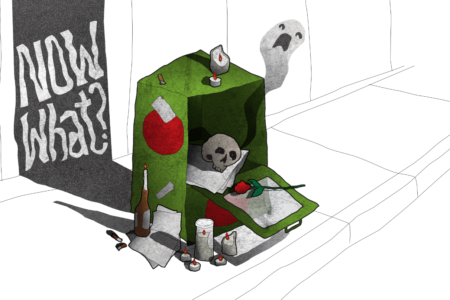
Contagious Imagination: The Work and Art of Lynda Barry
Edited by Jane Tolmie, 212 pgs, University Press of Mississippi, upress.state.ms.us, $30 USD
Is everyone born an artist? Most children innately paint, draw, write, sing and dance. Most adults don’t. What changes?
American cartoonist, author, professor and MacArthur “Genius” Grant recipient Lynda Barry promotes a return to childlike creativity. Contagious Imagination: The Work and Art of Lynda Barry traces her prolific portfolio of publications and their playful pedagogical applications. Barry’s praxis chips away at imposed and ingrained barriers that fuel self-doubt, hinder artistic output and contribute to a culture of anti-creativity.
Contagious Imagination contains a collection of rigorously researched essays and artistic texts that reify Lynda Barry’s teachings. The contributors examine her oeuvre across four parts: “Teaching and Learning,” “Comics and Autobiography,” “Cruddy” and “Research-Creation.” In the introduction, editor Jane Tolmie states the book’s intentions: “Effectively I, together with the authors and artists in this volume, am framing Barry as both an innovative and a dissenting presence within an increasingly neoliberal academy, and indeed economy.” The book dissects and builds on Barry’s powerful critique of neoliberal spaces, suggesting such environments are repressive in their facilitation of competition, perfectionism, individualism and maturity.
Like Lynda Barry’s own idiosyncratic work, Contagious Imagination touches on memory, relationships and the everyday. The writing throughout considers how Barry’s “word with drawing” vignettes encourage discourse on issues surrounding the politics of race, gender and class, bringing a critical approach to comic arts.
Through its earnest analysis, Contagious Imagination is contagiously liberating. The book is infused with the aliveness of its subject’s guiding beliefs and teachings. For someone new to Lynda Barry’s work, it is an excellent survey of and introduction to her career. Readers will be inspired with a sense of bravery and confidence in their own — possibly suppressed — creativity.





